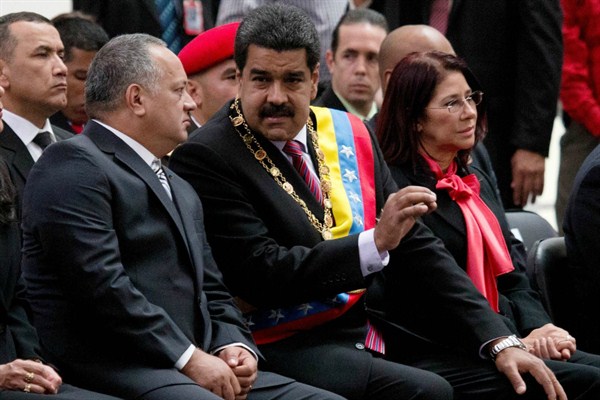Venezuelan President Nicolas Maduro walks and talks with the swagger of a man who just dealt the country’s opposition a crushing victory in the country’s recent legislative elections. But Maduro’s bravado ignores one telling fact: It was Venezuela’s opposition Democratic Unity Roundtable coalition—known by its Spanish acronym, the MUD—that was the victor in the Dec. 6 vote, securing a super-majority of 112 of the National Assembly’s 167 seats. Rather than accepting those results, Maduro talks as if he and his United Socialist Party of Venezuela, or PSUV, received a mandate to deepen and broaden Hugo Chavez’s leftist platform, the self-proclaimed Bolivarian Revolution.
That seeming inability to grasp the new political landscape may signal that there is little chance of Venezuela’s two warring sides coming together and tackling an economic crisis that has made toilet paper, milk and car batteries luxury items.
“The president doesn’t seem to recognize the new political reality,” says David Smilde, senior fellow at the Washington Office on Latin America. “If there is to be any chance of reconstructing the economy, then he will have to work with the opposition.”

